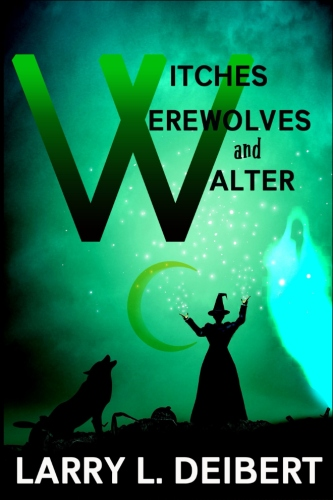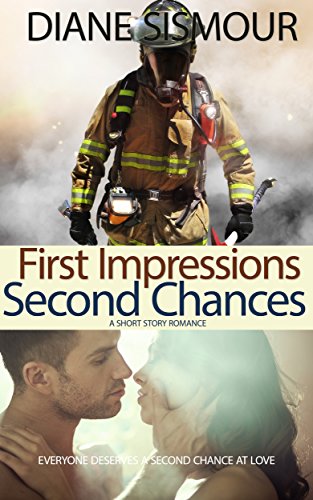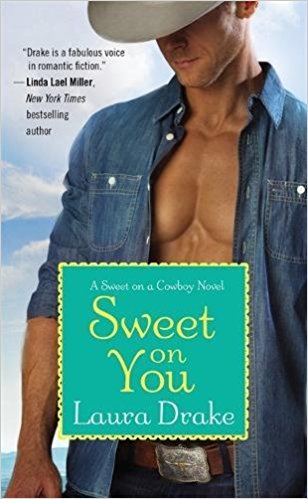Roadwork
August 30, 2025 by Dianna Sinovic in category Columns, Quill and Moss by Dianna Sinovic, Writing tagged as relationships, short fiction, vacations, writing
Carrie’s SUV coasted to a stop along I-78, the rest of the weekend morning traffic zooming past, hurrying on their way to Dorney Park or the Poconos farther on. The dashboard lights flashed a warning, but she already knew the problem.

“What did the mechanic say about the oil pressure?” She grabbed her phone to call for a tow truck, but first frowned at Hugh. He glanced away and shrugged.
“Maybe a leak.”
“Maybe?” She shot him a glare then spoke to the Triple A contact, who assured her someone would be there within a half hour. A semi passed the vehicle at seventy, rocking the SUV in its wake.
“And did he fix it?”
Hugh did what he usually did when confronted with an example of his failure to carry through. He turned the tables back onto the confronter.
“You could have checked it yourself.”
Five years. Their nickel anniversary. A planned weekend getaway lay two hours north and west, at a lakefront Airbnb. Which now looked like a long shot, given the dashboard oil light and a thirty-minute wait for a tow. And then probably pricey repairs.
Three of those years had been a joy. The last two, not so much. Yet, altogether a major improvement over her ex, who had kept his cheating ways so hidden, she’d felt like the ultimate stooge when she finally learned the truth.
Carrie chose a smile over the irritated sigh that threatened to burst out. “I’m looking forward to our mini-vacay, hon. It doesn’t do any good to point fingers at this point.” Her phone pinged. The tow driver. “Fifteen minutes, he says.”
In truth, she wasn’t excited about the end-of-summer weekend ahead. She’d be back in front of a classroom of seventh graders in just a few days, and had suggested the trip as a way to glue the fractures threatening to cleave their relationship. She didn’t much care for sitting at the edge of a lake, but Hugh fished, and the rental included a dock and a small boat. Her hope lay in what happened between them when he wasn’t dangling his line in the water. Or staring into his laptop.
The growl of a 500-horsepower engine edged up beside the SUV, and then the flatbed truck pulled onto the shoulder in front of them.
Carrie met the driver between the vehicles to confirm the tow details. Hugh emerged from the passenger side and hung back, hands in his shorts pockets. If he spoke, she didn’t catch it over the rush of the highway traffic only a few feet away. Exhaust fumes eddied around them.
She moved to the far edge of the shoulder, and Hugh followed, as the driver readied to position the SUV on the flatbed.
“Allentown,” Carrie said, raising her voice over the traffic noise. “It’s this next exit. There’s a service station that can take a look.” The morning sun beat down on them, waves of absorbed heat flowing up from the concrete. She pulled her sleeveless tee away from her back, damp with sweat. “We’ll be on our way by noon, maybe.”
Why did she always feel the need to be upbeat around Hugh? She was like a defective tire jack, continually boosting up the car of their relationship but never quite able to get the wheel off the ground. Maybe it was time to fold up the jack and let it go.
In the cab of the tow truck, Carrie let Hugh ride next to the driver and she took the window seat. She lowered her window to escape the stifling odor of cigarette smoke.
“Where you headed?” the driver said, putting the truck into gear.
Carrie prepared to give a brief summary of their weekend plans, but Hugh answered first, a surprise.
“We’ve rented a place on a lake,” he said, a hint of eagerness in his tone. “Good fishing. Good weather, we hope. About two hours from here.”
He reached over and squeezed her hand, a second surprise.
When had he last done that?
“Yep,” the driver said. He switched on his signal to exit the highway. “Looks like a fine couple days for you. The station’ll get you squared away. Don’t you worry.”
Carrie squeezed Hugh’s hand back.
The trip looked better already.
Dianna’s Books
Picture This
July 30, 2025 by Dianna Sinovic in category Quill and Moss by Dianna Sinovic, Writing tagged as crime fiction, short fiction, writing
When Kristi saw the blue ribbon, she smothered her surprise. Yes, she should have been ecstatic—first place for acrylics in the local arts festival. But the backstory for the painting, “Raging Storm,” was still too raw, too fresh.

“Love that piece,” gushed the festival director, who appeared at her side. “And it sold. Congratulations.”
“Ah … thanks,” Kristi sputtered.
“Those oranges and reds and dramatic splashes of purple,” the director continued. “The person who bought it remarked on the powerful emotions it seems to embody.”
Like searing anger? Soul-sucking depression?
But Kristi didn’t share that. “Yeah, well, I was just letting my feelings flow.”
Looking back, she should have seen the mismatch from the start: she, with her creative spirit—which Trey later dismissed as “flaky”—and he, with his dedication to rules and order. Hah. Their marriage vows had mentioned the rule about being true to each other. Then the news camera doing a feature on beach towns caught him unawares, walking arm-in-arm with a blonde, a senior VP at his company. Neither was dressed for the office. In fact, they were at the Jersey Shore.
Becca had warned her when Trey proposed and she’d accepted.
“You’re so different.” This from her bestie who was still searching for Mr. Right. “I’m trying to be honest but kind,” Becca said. “You won’t be happy with him. As I’ve told you, I always find corpses—those hidden flaws that lead to ruin. That’s what I’m feeling for you.”
But Kristi was positive about Trey. He was the one; differences made a relationship stronger, didn’t they? Being too much alike was boring. And everyone has flaws.
On their honeymoon, also at the Jersey Shore despite the wind-whipped October weather, she’d whispered in a moment of bliss, “Tell me everything.”
He, while amorously tracing the line of her arm, responded coolly. “I don’t have to. We all have secrets.” He continued his line drawing along her body, unaware she had recoiled. “I don’t expect you to tell me all of yours.”
Those first few years were glorious and satisfying, or she pretended they were. She painted and sold a few pieces; he spent long days at the office and climbed the corporate ladder. The whimsy he said was charming about her at the outset soured into a dirge of complaints. She could do nothing right.
When Kristi saw the news clip Becca forwarded, finally understanding what his latest secret was, she grasped that there had been others. She’d been played for a fool.
It’s midnight and I’m blue, she texted her friend. What now?
The reply came immediately. Leave the bastard.
She did, in her own way, by giving into her anger. He had it coming. That’s how she justified it. What had Becca said about finding corpses? Trey’s would never be found.
Then she got out her acrylics and a blank rectangle of canvas. It was too soon to compose an image of her life ahead. First, she needed to exorcise her sorrow and wrath.
“We hope you’ll enter a piece in our next festival.” The director was still nattering on about her painting and the other artwork on the walls that surrounded them. “You’ve got a good eye for color.”
More of Dianna’s Stories
Dianna Sinovic, Featured Author
July 29, 2025 by Dianna Sinovic in category Featured Author of the Month tagged as Dianna Sinovic, Featured author, new release, Scream of the Silent Sun
Author of the Month: Dianna Sinovic

Born and raised in the Midwest, Dianna has also lived in three other quadrants of the U.S. She writes short stories and poetry, and has just released a full-length novel, Scream of the Silent Sun.
She is a member of Sisters in Crime, Horror Writers Association, The American Medical Writers Association, and The Bethlehem Writers Group, LLC.
Dianna is a contributing author in the last four anthologies from The Bethlehem Writers Group, Season’s Readings: More Sweet, Funny, and Strange Holiday Tales, An Element of Mystery: Sweet, Funny and Strange Tales of Intrigue, Fur, Feathers, and Scales, Sweet, Funny Animal Tales and Untethered, Sweet, Funny & Strange Tales of the Paranormal. She has also contributed stories for the Bethlehem Writers Roundtable ezine, including “In the Delivery.”
Dianna also has a regular column here on A Slice of Orange, titled Quill and Moss, in which she frequently includes short fiction.
Other books by Dianna Sinovic
Dianna Sinovic, Featured Author
July 14, 2025 by Dianna Sinovic in category Featured Author of the Month tagged as Dianna Sinovic, Featured author, new release, Scream of the Silent Sun
Author of the Month: Dianna Sinovic

Born and raised in the Midwest, Dianna has also lived in three other quadrants of the U.S. She writes short stories and poetry, and has just released a full-length novel, Scream of the Silent Sun.
She is a member of Sisters in Crime, Horror Writers Association, The American Medical Writers Association, and The Bethlehem Writers Group, LLC.
Dianna is a contributing author in the last four anthologies from The Bethlehem Writers Group, Season’s Readings: More Sweet, Funny, and Strange Holiday Tales, An Element of Mystery: Sweet, Funny and Strange Tales of Intrigue, Fur, Feathers, and Scales, Sweet, Funny Animal Tales and Untethered, Sweet, Funny & Strange Tales of the Paranormal. She has also contributed stories for the Bethlehem Writers Roundtable ezine, including “In the Delivery.”
Dianna also has a regular column here on A Slice of Orange, titled Quill and Moss, in which she frequently includes short fiction.
Other books by Dianna Sinovic
Dianna Sinovic, Featured Author
July 1, 2025 by Dianna Sinovic in category Featured Author of the Month tagged as Dianna Sinovic, Featured Author of the Month, Quill and Moss, Scream of the Silent Sun, Short Stories
Author of the Month: Dianna Sinovic

Born and raised in the Midwest, Dianna has also lived in three other quadrants of the U.S. She writes short stories and poetry, and has just released a full-length novel, Scream of the Silent Sun.
She is a member of Sisters in Crime, Horror Writers Association, The American Medical Writers Association, and The Bethlehem Writers Group, LLC.
Dianna is a contributing author in the last four anthologies from The Bethlehem Writers Group, Season’s Readings: More Sweet, Funny, and Strange Holiday Tales, An Element of Mystery: Sweet, Funny and Strange Tales of Intrigue, Fur, Feathers, and Scales, Sweet, Funny Animal Tales and Untethered, Sweet, Funny & Strange Tales of the Paranormal. She has also contributed stories for the Bethlehem Writers Roundtable ezine, including “In the Delivery.”
Dianna also has a regular column here on A Slice of Orange, titled Quill and Moss, in which she frequently includes short fiction.
Other books by Dianna Sinovic
Affiliate Links
A Slice of Orange is an affiliate with some of the booksellers listed on this website, including Barnes & Nobel, Books A Million, iBooks, Kobo, and Smashwords. This means A Slice of Orange may earn a small advertising fee from sales made through the links used on this website. There are reminders of these affiliate links on the pages for individual books.
Search A Slice of Orange
Find a Column
Archives
Featured Books
THE FORMIDABLE EARL
He's breaking the rules for one woman, and coming dangerously close to falling in love…
More info →SNOW IN LOVE: Sweet Romance Holiday Collection
Escape into holiday magic with SNOW IN LOVE's sweet romance holiday stories!
More info →FIRST IMPRESSIONS SECOND CHANGES
Everyone deserves a second change at love.
More info →Newsletter
Contributing Authors
Search A Slice of Orange
Find a Column
Archives
Authors in the Bookstore
- A. E. Decker
- A. J. Scudiere
- A.J. Sidransky
- A.M. Roark
- Abby Collette
- Alanna Lucus
- Albert Marrin
- Alice Duncan
- Alina K. Field
- Alison Green Myers
- Andi Lawrencovna
- Andrew C Raiford
- Angela Pryce
- Aviva Vaughn
- Barbara Ankrum
- Bethlehem Writers Group, LLC
- Carol L. Wright
- Celeste Barclay
- Christina Alexandra
- Christopher D. Ochs
- Claire Davon
- Claire Naden
- Courtnee Turner Hoyle
- Courtney Annicchiarico
- D. Lieber
- Daniel V. Meier Jr.
- Debra Dixon
- Debra H. Goldstein
- Debra Holland
- Dee Ann Palmer
- Denise M. Colby
- Diane Benefiel
- Diane Sismour
- Dianna Sinovic
- DT Krippene
- E.B. Dawson
- Emilie Dallaire
- Emily Brightwell
- Emily PW Murphy
- Fae Rowen
- Faith L. Justice
- Frances Amati
- Geralyn Corcillo
- Glynnis Campbell
- Greg Jolley
- H. O. Charles
- Jaclyn Roché
- Jacqueline Diamond
- Janet Lynn and Will Zeilinger
- Jaya Mehta
- Jeannine Atkins
- Jeff Baird
- Jenna Barwin
- Jenne Kern
- Jennifer D. Bokal
- Jennifer Lyon
- Jerome W. McFadden
- Jill Piscitello
- Jina Bacarr
- Jo A. Hiestand
- Jodi Bogert
- Jolina Petersheim
- Jonathan Maberry
- Joy Allyson
- Judy Duarte
- Justin Murphy
- Justine Davis
- Kat Martin
- Kidd Wadsworth
- Kitty Bucholtz
- Kristy Tate
- Larry Deibert
- Larry Hamilton
- Laura Drake
- Laurie Stevens
- Leslie Knowles
- Li-Ying Lundquist
- Linda Carroll-Bradd
- Linda Lappin
- Linda McLaughlin
- Linda O. Johnston
- Lisa Preston
- Lolo Paige
- Loran Holt
- Lynette M. Burrows
- Lyssa Kay Adams
- Madeline Ash
- Margarita Engle
- Marguerite Quantaine
- Marianne H. Donley
- Mary Castillo
- Maureen Klovers
- Megan Haskell
- Melanie Waterbury
- Melisa Rivero
- Melissa Chambers
- Melodie Winawer
- Meriam Wilhelm
- Mikel J. Wilson
- Mindy Neff
- Monica McCabe
- Nancy Brashear
- Neetu Malik
- Nikki Prince
- Once Upon Anthologies
- Paula Gail Benson
- Penny Reid
- Peter J Barbour
- Priscilla Oliveras
- R. H. Kohno
- Rachel Hailey
- Ralph Hieb
- Ramcy Diek
- Ransom Stephens
- Rebecca Forster
- Renae Wrich
- Roxy Matthews
- Ryder Hunte Clancy
- Sally Paradysz
- Sheila Colón-Bagley
- Simone de Muñoz
- Sophie Barnes
- Susan Kaye Quinn
- Susan Lynn Meyer
- Susan Squires
- T. D. Fox
- Tara C. Allred
- Tara Lain
- Tari Lynn Jewett
- Terri Osburn
- Tracy Reed
- Vera Jane Cook
- Vicki Crum
- Writing Something Romantic
Affiliate Links
A Slice of Orange is an affiliate with some of the booksellers listed on this website, including Barnes & Nobel, Books A Million, iBooks, Kobo, and Smashwords. This means A Slice of Orange may earn a small advertising fee from sales made through the links used on this website. There are reminders of these affiliate links on the pages for individual books.






















































